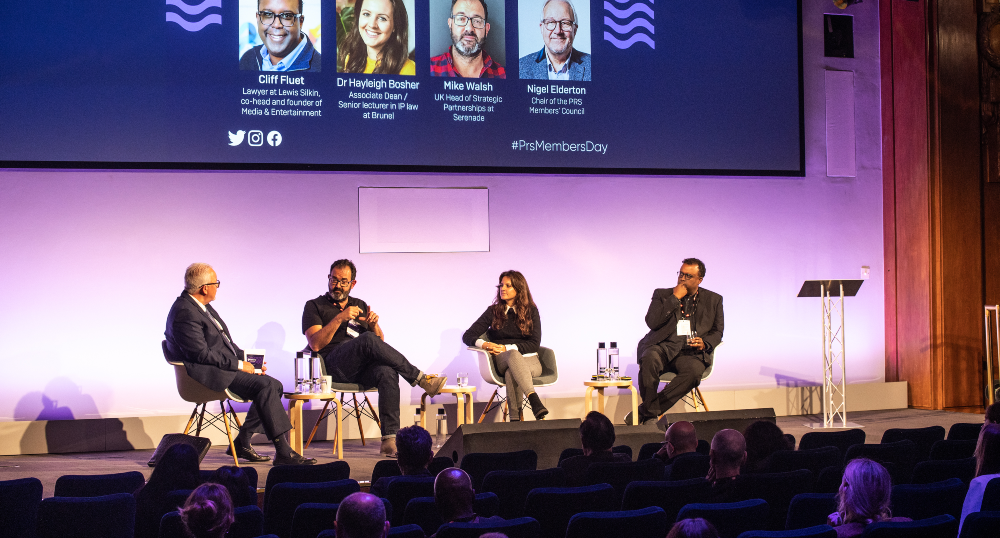The session formed part of Music Ally’s Copyright & Technology conference at Reed Smith’s offices in the city.
It was moderated by Serena Tierney of Bircham Dyson Bell and included journalist Andrew Orlowski from The Register, Mo McRoberts from BBC Archive, Jeff Smith from BBC Radio 2 and 6 Music, and Lindsay Lane of 8 New Square Intellectual Property.
All agreed that there would be far-reaching repercussions for rightsholders, the music industry and technology firms if the High Court ruled there to be sufficient intellectual creation in the selection of tracks on MoS compilations to make the Spotify playlists which are based on them a copyright infringement.
McRoberts, a technologist who works at the BBC Archive, tackled the issue both as a Spotify user and MoS customer: ‘My first reaction when this story broke was to put my head in my hands and say, “Really?” But I think it’s important to unpack it because there’s a lot of nuance to it.
‘If there is an infringement going on, who is actually infringing? Is it Spotify – the platform that is facilitating it? Or is it the end users? The people who have bought the MoS albums and who are listening to them on playlists within Spotify?’ he asked.
‘MoS probably doesn’t want to sue its own customers. But if Spotify isn’t found to be infringing, yet there is infringement happening, then it’s MoS’s own customers who are doing it.'
Andrew Orlowski, a veteran reporter at respected daily The Register, spoke next. ‘A lot of public disputes about copyright are only public disputes because they haven’t been settled in private. The reason they haven’t been settled in private is because the incentives aren’t lined up,’ he said.
‘We have dysfunctional markets for digital goods, and in some cases, no market at all. I don’t think MoS would have a dispute with Spotify if there are pounds coming in rather than pennies. If there was more money coming into the system would these boundaries disputes become conflagration?'
Lindsay Lane, a lawyer specialising in this area, added: ‘It has been suggested that this is might actually be a trademark infringement case rather than a copyright case, and there may well be a technology infringement case being run as well.
‘At the crux of this case are two questions - where is this infringement going on and who is doing the infringing act? It sounds as though it may be being said by MoS that Spotify is enabling the consumers of Spotify to infringe by playing the playlist. From a PR perspective I don’t know how attractive it’s going to be to stand up in court and say its all those end users who are liable.’
Meanwhile. Jeff Smith from BBC Radio 2 and 6 Music, who’s responsible for those stations’ programming and playlists, noted: ‘It’s interesting how the name "radio" has been taken by various internet services and also how "playlist" has been taken too. Playlist used to mean the new releases played on the radio. Now it can refer to allsorts of things and can get into allsorts of complications.
‘We’re seeing tyranny of excess in music services, whereby there are 25 million tracks in the cloud and people have to find their way through it. Part of radio’s job in the past is help our audience find our way through it. I think nowadays playlists – either from the BBC or its audience - are more important. How they are protected is a real challenge. There are real concerns from radio on how we protect ourselves in the future.'
Tell us your views: join the debate on the PRS for Music Facebook page or M Twitter feed.




